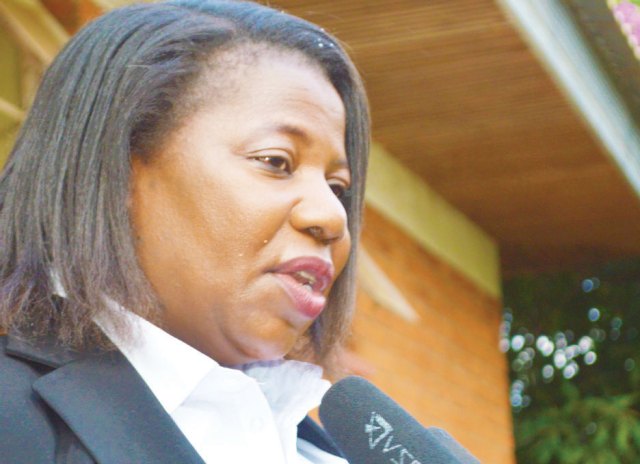By Morton Sibale
With barely a week to go before the Supreme Court hears the presidential elections appeal case, there is a dramatic twist of events as the Malawi Law Society (MLS) has filed in objection to the admission of the two South African lawyers who were contacted by Malawi Electoral Commission (MEC) to represent them in the case.
MLS Secretary, Martha Kaukonde confirmed the development “Yes, I confirm that we have filed our affidavits and skeleton arguments objecting to the admission of the South Africans in the appeal case. Both the sworn statements and the skeleton arguments documents have since been served on the applicants,” she said.
The society has presented four reasons for the objection, which include flaws in the procurement process, exorbitant fees and health security issues in line with the current corona virus global pandemic.

Though admitting that the lawyers- Elizabeth Makhanani Baloyi and Dumisani Buhle Ntsebeza of South African law firm Mboweni Maluleke Inc. satisfy the criteria as set out in the Legal Education and Legal Practitioners Act, the society says the two should not be allowed to practice in the case.
The reasons include; (i) failure to comply with Public Procurement Act by the procuring entity; (ii) failure to comply with the Public Finance Management Act by the procuring entity; (iii) Failure to satisfy rules on costs of legals services as set out in the LELP Act and (iv) Risk to public health and procedural mis-timing of the application.
On non-compliance with the Public Procurement Act, MLS claim that though the Public Procurement and Disposal of Assets Authority issued a No Objection to Single Sourcing for the Procurement of Legal Services in favour of the Electoral Commission, no reason was provided for the decision.
“The reason(s) for the use of such single sourcing method is not disclosed on all records of the matter as served on MLS. The entire record (also) does not provide proof of vetting by the Anti-Corruption Bureau (ACB,” reads the skeleton argument.
On non-compliance with the Public Financial Management Act, MLS argues that MEC had not indicated to the Public Procurement and Disposal of Assets Authority availability of funding for the proposed procurement of the legal services, as is required by the Act.
MLS also argues that as a body mandated with regulating legal fees, MEC did not consult the society in arriving at the reasonableness of the US$ 788, 500 that is required to be paid to the South African firm. The society also argues that the fee is not commensurate with the work that is expected to be performed by the practitioners.
“On the face of it, the sum appears to the Law Society to be way on the higher side if the consideration for Solictor-Own Client regulations are applied,” reads part of the skeleton argument.
The Society also argues that admitting the lawyers would result in the adjournment of the case, as they will be required to observe a 14-day quarantine recommendation upon arrival, in line with the current corona virus pandemic.
Tamanda Chokhotho, who made the application for Churchill & Norris, though admitting having been served with the documents, said he could not comment on the matter.
“We are not speaking to the press on this issue. We will deal with the issue (the objection) in court,” he said.
MEC and President Arthur Peter Mutharika, who were respondents in the 2019 Malawi Presidential elections case appealed to the Supreme Court the judgment of the Constitutional Court that nullified the 2019 presidential election.
MEC then moved to source the services of the South African lawyers after the Constitutional Court ruled that the Attorney General, who represented the electoral body in the elections case, cannot be allowed to represent the body in such cases as it is against the constitutional mandate of the office.
The appeal case will be heard on 15 April.


